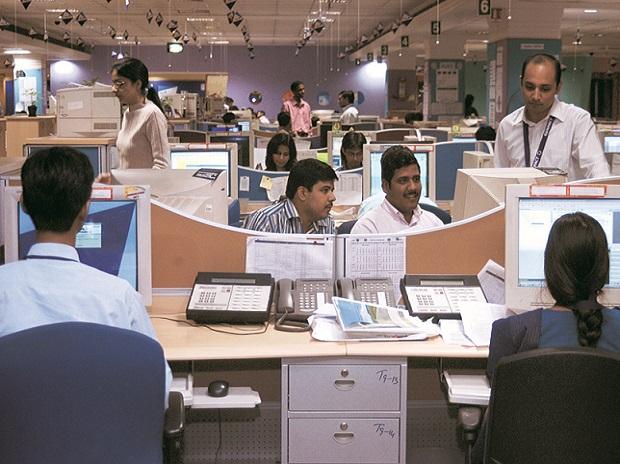Leading IT services companies are focusing cutting costs, as growth slows and demand becomes uncertain in the coronavirus pandemic and the national lockdown to contain the disease.
Firms like TCS, Infosys and Wipro signalled in the March quarter they would take aggressive measures like reducing subcontracting and travel expenses, freezing salary hikes and holding back variable payments.
"We are looking at costs as if our lives depend on it. If one is witnessing a revenue reduction which will happen, the only way to respond is to reduce the costs," said Jatin Dalal, Chief Financial Officer at Wipro.
V Ramakrishnan, chief financial officer at TCS, has said that the Mumbai-headquartered company was looking at cost optimisation measures "as much as possible" across the board.
Infosys and Wipro refrained from giving revenue growth guidance in quarterly reports. TCS does not give growth guidance figures, but the company has likened the situation with that of 2008 Global Financial Crisis. Rating agency Crisil said in a recent report revenue pressures in the $97 billion IT services industry will intensify this year, crimping growth to a decadal low of 0-2 per cent. In FY18, the industry by far had registered the lowest growth at 4 per cent.
Tech Mahindra has announced a multi-lever approach of reducing subcontracting costs, third-party costs, and even travel expenses which account for 2-3 per cent of overall costs. The Pune-based company also said that it would bring in tighter synergies among subsidiaries apart from effecting a temporary freeze in salary hikes and variable pay. India’s second largest IT services company Infosys has said that its cost optimization measures exceeded the $150 million target for the FY20. The same measures including automation, employee pyramid rationalization and reduction in subcontracting costs would continue in the current year.
Apart from lower revenue, other headwinds such as lower utilisation, price negotiations from the clients and higher competition are also the reasons why companies are pushing for such measures, said Sanjeev Hota, vice president (head of research) at Sharekhan, a broking firm. Temporary salary freezes and tweaks to variable pay was also common across the board.
"Our assumption is there will be a demand deterioration for six months so that will affect the cost side and normalization of growth would return in FY22," said Hota.
The opportunity for optimising employee and outsourcing costs--accounting for nearly 70 per cent of revenues--despite potential curb on recruitments and wage hikes, appears to be limited, said Crisil. "IT firms have already streamlined costs and raised utilisation rates to peak levels of 85-90 per cent in recent years by increasing the share of fixed-price contracts."
